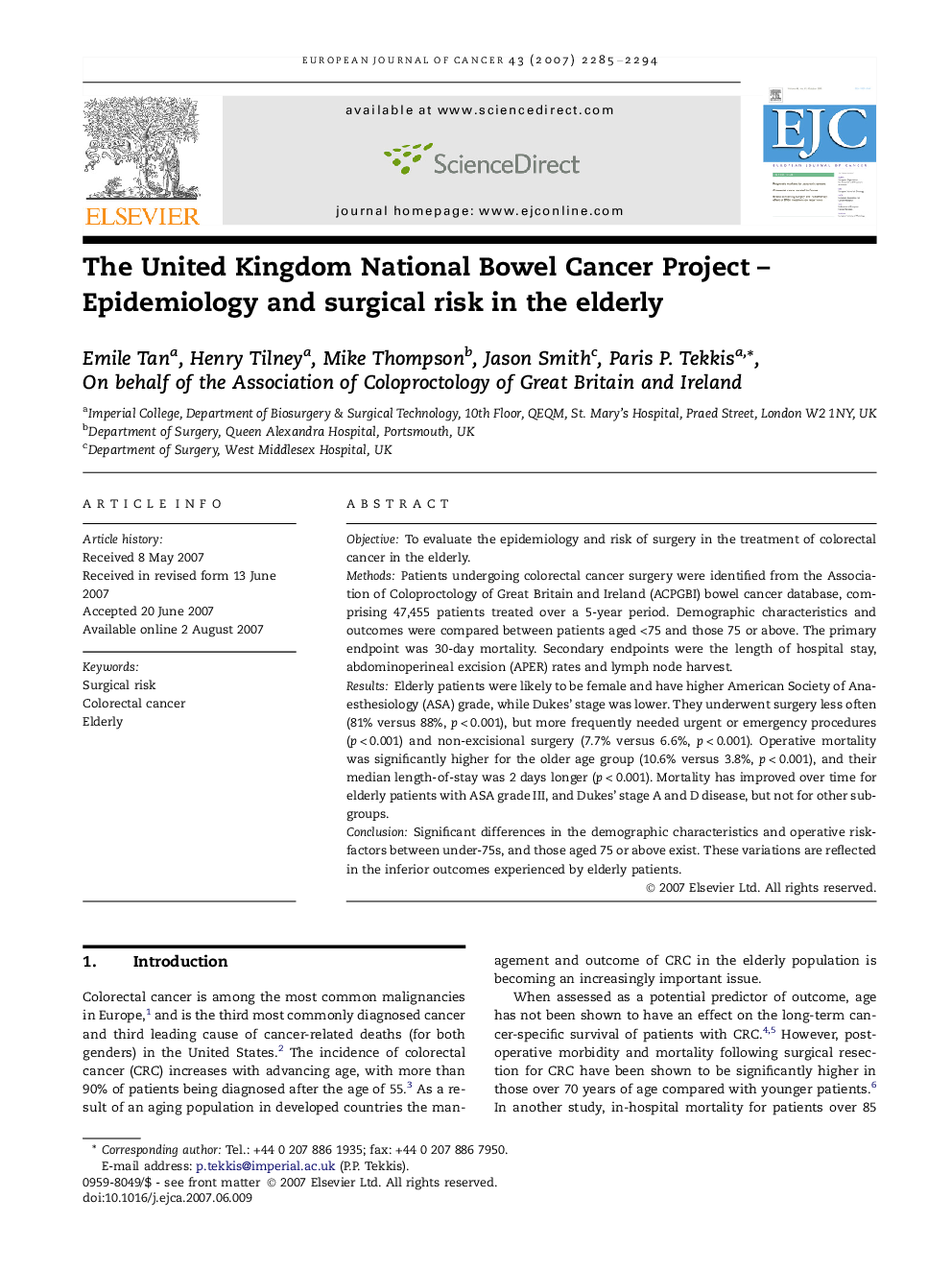| Article ID | Journal | Published Year | Pages | File Type |
|---|---|---|---|---|
| 2125306 | European Journal of Cancer | 2007 | 10 Pages |
ObjectiveTo evaluate the epidemiology and risk of surgery in the treatment of colorectal cancer in the elderly.MethodsPatients undergoing colorectal cancer surgery were identified from the Association of Coloproctology of Great Britain and Ireland (ACPGBI) bowel cancer database, comprising 47,455 patients treated over a 5-year period. Demographic characteristics and outcomes were compared between patients aged <75 and those 75 or above. The primary endpoint was 30-day mortality. Secondary endpoints were the length of hospital stay, abdominoperineal excision (APER) rates and lymph node harvest.ResultsElderly patients were likely to be female and have higher American Society of Anaesthesiology (ASA) grade, while Dukes’ stage was lower. They underwent surgery less often (81% versus 88%, p < 0.001), but more frequently needed urgent or emergency procedures (p < 0.001) and non-excisional surgery (7.7% versus 6.6%, p < 0.001). Operative mortality was significantly higher for the older age group (10.6% versus 3.8%, p < 0.001), and their median length-of-stay was 2 days longer (p < 0.001). Mortality has improved over time for elderly patients with ASA grade III, and Dukes’ stage A and D disease, but not for other subgroups.ConclusionSignificant differences in the demographic characteristics and operative risk-factors between under-75s, and those aged 75 or above exist. These variations are reflected in the inferior outcomes experienced by elderly patients.
